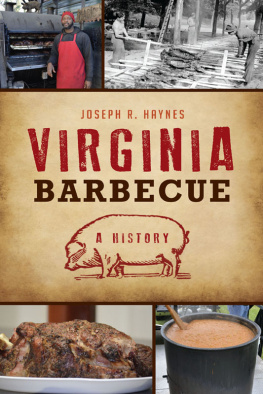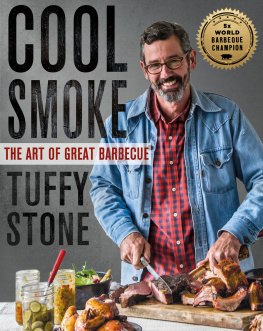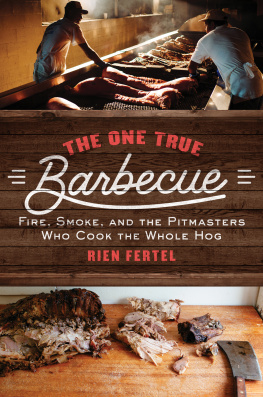
Published by American Palate
A Division of The History Press
Charleston, SC 29403
www.historypress.net
Copyright 2014 by Craig David Meek
All rights reserved
All photos by Craig David Meek unless otherwise noted.
First published 2014
e-book edition 2014
ISBN 978.1.62585.066.9
Library of Congress Cataloging-in-Publication Data
Meek, Craig.
Memphis barbecue : a succulent history of smoke, sauce and soul / Craig Meek.
pages cm. -- (American palate)
print edition ISBN 978-1-62619-534-9 (paperback)
1. Barbecuing--Tennessee--Memphis. 2. Cooking--Tennessee--Memphis. 3. Restaurants--Tennessee--Memphis--History. 4. Memphis (Tenn.)--Social life and customs. I. Title.
TX840.B3M46 2014
641.760976819--dc23
2014016298
Notice: The information in this book is true and complete to the best of our knowledge. It is offered without guarantee on the part of the author or The History Press. The author and The History Press disclaim all liability in connection with the use of this book.
All rights reserved. No part of this book may be reproduced or transmitted in any form whatsoever without prior written permission from the publisher except in the case of brief quotations embodied in critical articles and reviews.
CONTENTS
FOREWORD
Memphis is, arguably, Americas greatest city for barbecue. No city hosts as many stellar barbecue eateries as the Bluff City, and no other location offers the kind of variety found on Memphis menus. With restaurants in every neighborhood, feeding every demographic, Memphis proudly serves up unique barbecue on every corner. And while the affection for the Memphis staple is well known, the story behind the pitmasters is a tale deserving of a book.
One doesnt have to be a lover of barbecue to be interested in this book. Foodies will delight in the books attention to culinary historythe traditions, ingredients and innovative approaches to established recipes are chronicled, lovingly, in the pages. Unlike many nods to southern cooking, barbecue is not treated as a kitschy backyard cuisine here but rather is given a powerful place in the canon of American regional food. Slow-cooked meats are a common language for food lovers, and this book makes the connections to other classic cooking methods. And if you happen to be a Memphis local or visiting tourist, Craig proves to be an experienced guide to answer the questions of where and what to eat. In a city with a multitude of delicious local places to choose from, this book serves as your docent to the options.
What really stands out about Craigs book is the examination of the foods context. Smoked pork wasnt madeor enjoyedin a vacuum. The rich flavor and texture of the meat is the perfect metaphor for the landscape of the city and the food it fosters. With each restaurant he visits and each pitmaster he questions, Craig is keenly aware of not just the history of the business but also the socioeconomic complexities behind each dish. This is a city characterized by struggle and change, and the cuisine reflects that. The chapters reveal the relationship barbecue developed with the burgeoning music scenes, the interactions the restaurants and patrons had with local law and political power and the consequences of social forces on emerging businesses. As readers learn about the variations of slow-cooked pork shoulder and ribs, they will discover the stories and characters behind the barbecue pits, from the nationally known restaurants to the barrel cookers on street corners and in front of music clubs.
Anna Mullins
Executive Director, The Cotton Museum
Managing Editor, High Ground News
ACKNOWLEDGEMENTS
This book is the result of a lifetime of eating barbecue, nearly three years of blogging about it as a hobby and four months of intense interviewing, photographing, writing and editing before I suddenly found myself with a book contract and a deadline. Along the way, I received help from more people than I can list, but several stand out for their larger contributions.
First I have to thank my lovely wife, Jessica Elvert, for her understanding and encouragement as I battled with this project on nights and weekends while running a business. A shared love of food, music and travel are cornerstones of our relationship.
My commissioning editor from The History Press, Kirsten Schofield, offered me the opportunity to create this book and was a steady source of guidance, constructive criticism and helpful advice throughout its creation.
This book would not have been possible without all the people who took time from their busy schedules for interviews with me. They provided the cast of characters that brings this story to life. There are three people mentioned in this book whose contributions go far beyond the quotes attributed to them in the manuscript. Blake Marcum was my ambassador to the world of competition barbecue, providing countless valuable insights and introductions. Richard McFalls happily shared his encyclopedic knowledge of Memphis barbecue restaurant history along with photos he gathered while creating his always-fascinating Memphis Barbecue Restaurants Ghost Pit Chronicles blog. Blake and Richard both selflessly returned my constant calls, texts and e-mails loaded with esoteric barbecue questions, and both routinely went the extra mile to find the answers I needed. Beyond being an extremely talented barbecue cook, Brent McAfee is the definition of a friend, always willing to lend a hand at a moments notice. Before I ever had a barbecue blog, I once approached him with questions about cooking two whole pigs in my backyard for my birthday. He immediately offered his services as pitmaster, and the end result was an epic feast. As a close friend and classically trained chef who has lived around the corner from us for years, he taught me and my wife a tremendous amount about the fundamentals of culinary technique.
Some of the best barbecue around Memphis is cooked by individuals in backyards. Travis Walker is a former coworker and longtime barbecue mentor whose homemade barbecue puts most restaurants to shame. He doesnt compete. He just does it for the satisfaction that comes from the endless pursuit of his own vision of perfection.
The history department on the fourth floor of the Central Memphis Library is a priceless asset for anyone researching any aspect of Memphis history. I am grateful to the entire ever-helpful and knowledgeable staff there, particularly Gina Cordell, the curator of the departments Memphis and Shelby County Room, who became my go-to source for all the seemingly random press clippings, photos and microfilm I needed to find. She never questioned my sanity at times when, while working on a book about barbecue, I suddenly wanted to see all the old newspaper reports I could find about something like Machine Gun Kellys 1933 arrest in Memphis.
Newspapers publish the first drafts of history, and the old reports by the Commercial Appeal and the Memphis Press Scimitar were tremendous assets. In fact, the Commercial Appeal remains a tremendous asset today. I got numerous ideas for restaurants to visit from articles by food and entertainment writers Jennifer Biggs and Michael Donahue. The interviews with area restaurant owners conducted by the Southern Foodways Alliance, available online, were another huge advantage. All the quotes in this book are from interviews conducted by me unless specifically noted otherwise, but reading the Southern Foodways Alliances interviews frequently provided useful background when I sat down with restaurant owners myself. Some of the quotes its members recorded were so perfect I had to include them, always providing credit where due.
Next page


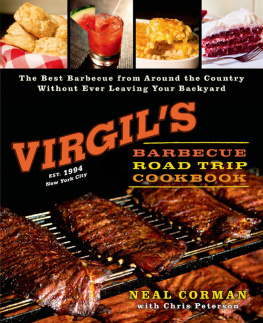
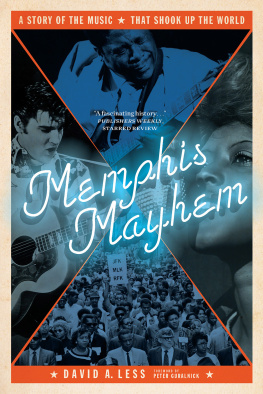
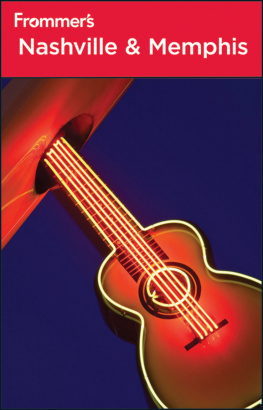

![Linda Romine - Frommers Nashville & Memphis [2012]](/uploads/posts/book/215328/thumbs/linda-romine-frommer-s-nashville-memphis-2012.jpg)
